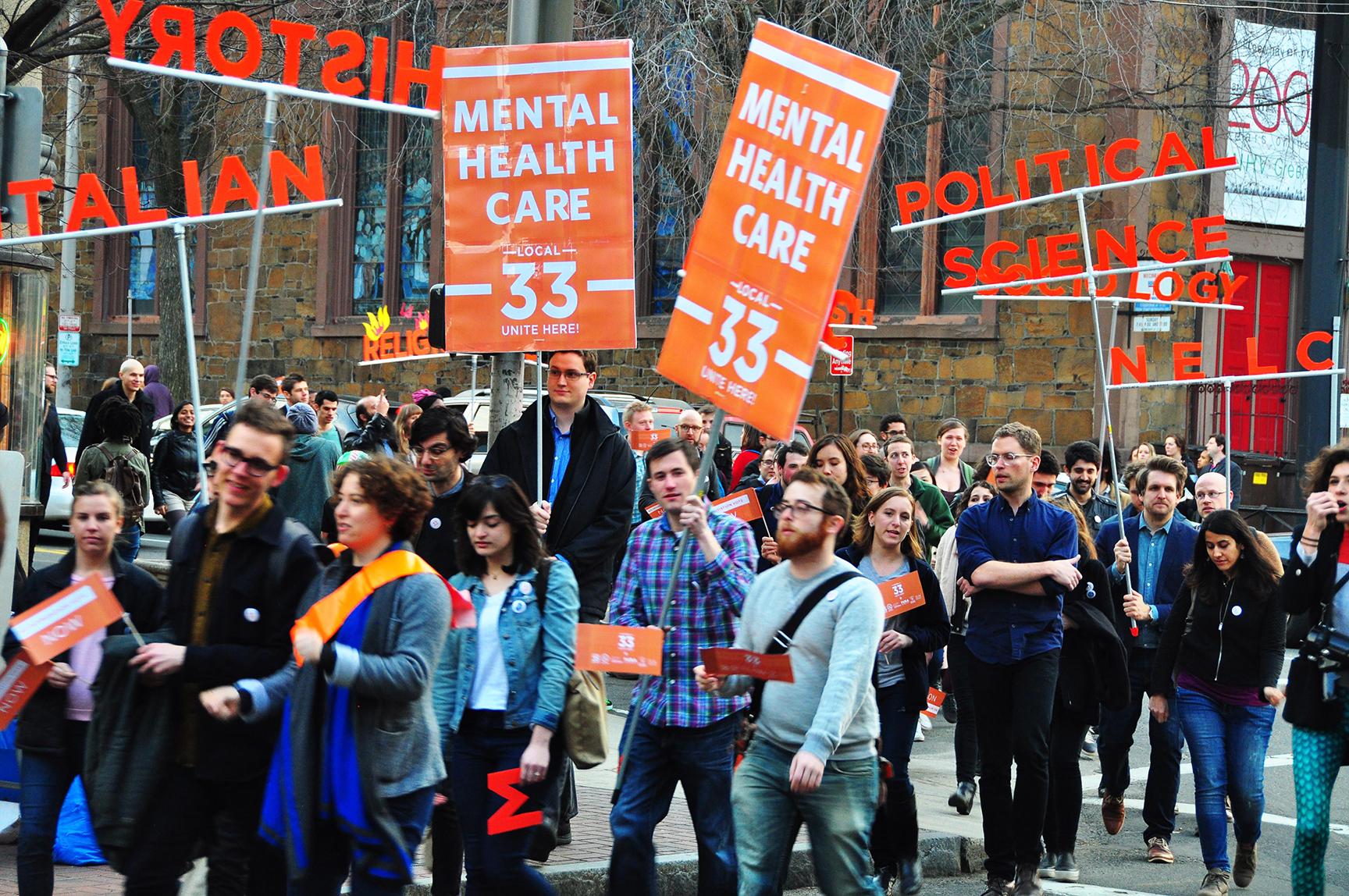
Students in nine separate academic departments at the Graduate School of Arts and Sciences will head to the polls today, the first time in Yale’s history that graduate students will cast legally binding votes on whether to collectively bargain with the University.
The nine elections will take place in two polling locations: the Dwight Hall common room and Founders Hall on Prospect Street, from 9 a.m. to 1 p.m. and 4 p.m. to 6 p.m. Graduate students in East Asian Languages and Literatures, English, History, History of Art, Political Science and Sociology will vote in Dwight Hall, while students in Mathematics, Physics and Geology and Geophysics will vote in Founders Hall.
“We’re excited to finally be able to vote,” Local 33 Chair Aaron Greenberg GRD ’18 said. “I started organizing when I got here five years ago. It’s been a long time for me, but the campaign has been here for 25 years. I expect us to win our elections and start negotiating our first contract.”
In August, the National Labor Relations Board ruled that graduate students who assist with teaching and research at private universities have the right to unionize. That was followed by a January NLRB decision that ruled that Yale’s unofficial graduate student union Local 33 will be allowed to hold labor elections on a department-by-department basis.
Only students who are currently teaching in the nine departments — including Ph.D. students based in those departments, Ph.D. students based in other departments and master’s and professional students — will have their votes counted in the election. But according to the NLRB decision, the master’s and professional students will vote under challenge, meaning that their eligibility may not be determined until after the elections. An eligibility dispute is currently prolonging the union election process for graduate students at Harvard.
“We know from situations at other universities that determining who is eligible to vote in these kinds of elections can be quite conflictual,” University President Peter Salovey told the News last month. “It is not a straightforward question.”
A total of 313 students, or about 10 percent of the graduate student body, will be eligible to vote today. Of those, 62 are non-Ph.D. master’s and professional students, whose votes will likely raise eligibility disputes after the election. Six of the nine departments voting include eligible non-Ph.D. students, and in the East Asian Languages and Literatures Department alone, 21 of the 27 eligible voters fall under the non-Ph.D. umbrella.
The decision whether to unionize has polarized graduate students in the weeks leading up to the election.
At a Physics Department town hall last Friday, students voiced their opinions on the question. Mehmet Dogan GRD ’17 said that he is voting “yes” in the Physics Department because he wants dental care and better access to mental health resources, among other things. At the town hall, Dogan added that if unionization is passed in the Physics Department, Local 33 plans to immediately sit down with the department to lay out priorities for subsequent negotiations with the University.
“I hope many of you will vote yes with me and be a part of this historic moment,” Dogan told the crowd.
At the town hall, Savannah Thais GRD ’20 supplied numerous reasons as to why she opposes Local 33, but not necessarily graduate student unionization. She said that Local 33’s novel departmental strategy would cause unfair representation for certain departments, and that Local 33’s leadership is unprepared to negotiate with the University.
Thais said that either unionized students in these departments are going to gain advantages that other nonunionized students don’t have, or Yale will negotiate one contract and apply it unilaterally to all students at the graduate school, giving the majority of graduate students a contract which they had no say in.
In a Wednesday email to the graduate student body, GSAS Dean Lynn Cooley told students that she hopes all 313 eligible students will vote after “careful consideration of whether Local 33 is right for Yale.” Cooley added that she does not believe that students should be considered employees and that she is not convinced that Local 33 can effectively represent the interests of all students.
Cooley also pointed to students who have spoken out against Local 33 as having organizing tactics that include harassment and intimidation.
“Such conduct raises serious questions about Local 33’s respect for the views of all graduate students,” she wrote.
At a Graduate Student Assembly unionization town hall in Sudler Hall on Wednesday night, a panel including Graduate Student Assembly Chair Nicholas Vincent GRD ’17 and Greenberg fielded questions from the audience.
Greenberg said he plans to make the union inclusive and democratic, and that he intends to continue to work with the graduate assembly as well as bargain with the University in the future.
Vincent highlighted many concerns that he has heard regarding students who could be bound to union contracts in which they had no say. He added that the assembly is officially neutral on the topic of unionization but opposes Local 33.
Since the NLRB ruling last August, graduate student union elections have been held at both Columbia and Harvard. In contrast to the department-level approach that Local 33 has pursued, those elections were schoolwide, and they have yet to be resolved.
Currently, the only existing union representing graduate students at a private university is at New York University.







